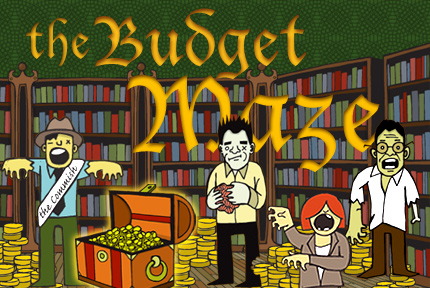
As Mayor Michael Bloomberg seems to never tire of telling us, New York's balmy budget days have ended. Foreign tourists still spend their Euros here, the number of jobs in the city continues to grow and Manhattan real estate remains hot. Still, Bloomberg continues to forecast Wall Street's troubles will lead to falling city revenues over the next few years.
"Everyone in this city should pray that Wall Street does well," said Bloomberg.
City officials, though, are not simply waiting for divine intervention. Bloomberg's executive budget calls for cuts in city spending on an array of services including schools, youth programs and cultural affairs. For its part, the City Council, which must approve the budget, announced in May that it would not seek to launch any new initiatives for fiscal year 2009. Instead, several key members said in a prepared statement, the council would try to do what it can to maintain existing services.
Even in good times, budgets present tough choices, particularly in a diverse and complicated city whose citizens have so many competing needs and demands. But as funds get tight, the choices become even more difficult. Any New Yorker who wants to preserve spending -- in education, for example -- or find a modest sum for a new program faces enormous challenges.
The Budget Maze, Gotham Gazette's latest game, guides you through this complicated and sometimes downright arcane process. If you're seeking to lobby the powers that be, the game offers a useful guide. If you're a student or an armchair activist, the three mazes should help you better understand the tortuous process that shapes city taxing and spending.
In 2003, Gotham Gazette released its first Budget Game that lets players confront the realities of a balanced budget: If you increase spending in one place, you have to cut it somewhere else. Although the numbers no longer apply, the game still offers a great introduction to the tradeoffs the mayor and the City Council must make. This new game focuses more how policy is made and how citizens can affect it.
Navigate the Dungeon
In the new Gotham Gazette game, you are a knight, setting out to rescue funding for yourself or your community. The decisions you make along the way will determine whether you fail or succeed, how many points you acquire and whether you are a budget apprentice, a journeyman or -- at the apex-- a master of the budget.
New York City is legally bound to have a balanced budget in place by July 1. Every year, sometime in early January, the mayor releases a preliminary budget that lays out the administration's expectations for the coming fiscal year. In Albany, the state has until April to approve a budget -- this gives the city a clear picture of what to expect from upstate in the coming year.
In April or May, after an initial round of negotiations and hearings and following that state budget announcement, the mayor issues the executive budget. The City Council holds hearings on the plan, and council and the administration debate it -- sometimes collegially, sometimes acrimoniously. By June 30, the new budget must be in place.
The game seeks to replicate that. Here's how it works.
We've given you 180 days, from January to the end of June, to find your way through the maze.
As you use arrows to guide yourself through our labyrinth, you will come to a series of chambers, each confronting you with a challenge. How do you get information? What officials should you seek out? How can you wield influence? How can citizens get involved in shaping the city budget? Our game will test your knowledge and (we hope) teach you a bit about how the city budget works.
Days pass as you make your choices, and you must use your time wisely. Lobbying the wrong person takes precious time and moves you no closer to your goal. Lobbying the right official takes time too -- but it does get you nearer to victory.
Influencing policy is always easier when you have a little clout, so as you build influence, you'll also gather points.
When you get to the end of the maze, your score will show you just how much time you had left in the budget process -- the more time you have left the more secure your funding is -- and how much clout you gathered.
If you can't get through the maze in those six months, you lose. Hint: Getting yourself shipped off to the clink will cost you a lot of time, so try to stay this side of the law.
Good luck! And please send us your comments and suggestions.
Making Your Way Through
If you're the sort of gamer who wants to have things a little easier, here's a bit of a cheat sheet:
As you make your way through the dungeon, check the maze overview to see where you are. The overview is always arranged so that north is up, but the direction you face in the maze changes every time you turn a corner. Use the arrows to guide you through the maze.
The progress meter will let you know how many questions you have to go before you're done with the game.
Your final score is the number of days you have left multiplied by the number of points you accumulated. The higher the score the more adept you are at navigating New York City's corridors of power.
The Garbage Game was developed, written and designed by Gotham Gazette: Courtney Gross, Amanda B Hickman, Gail Robinson, Ya-Hsuan Huang
Art by Alex Eben Meyer
Programming by Forum One Communications
Funding provided by the John S. and James L. Knight FoundationÂ






